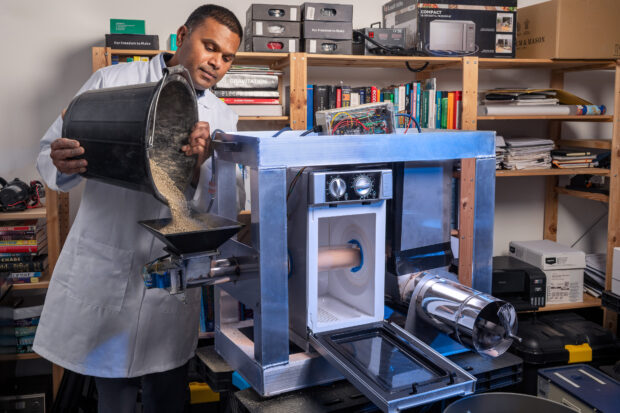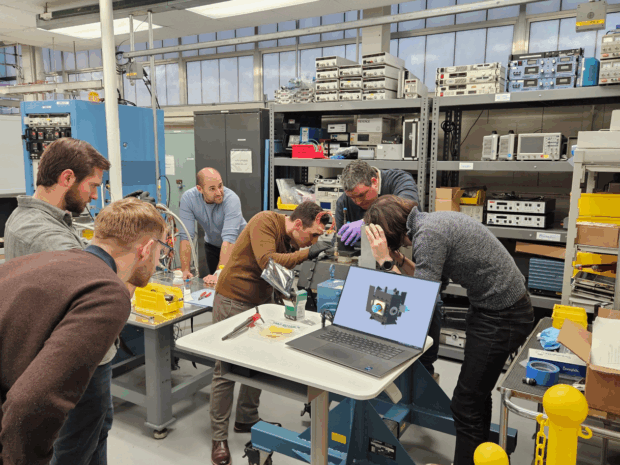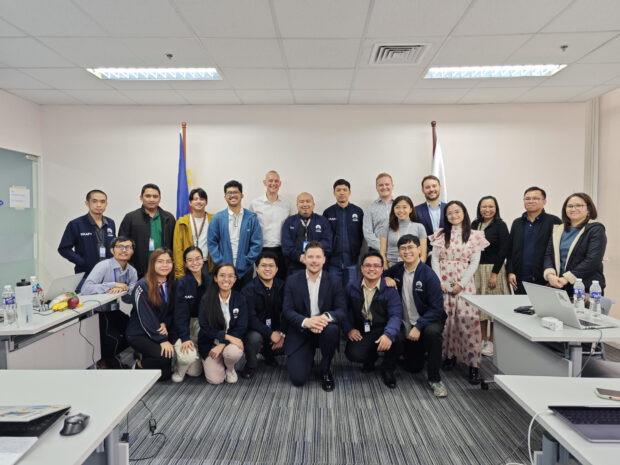The UK Space Agency is making £5.5 million of funding available for new proposals under the International Bilateral Fund (IBF) - a programme supporting ambitious partnerships between UK organisations and international space entities.
Since its launch, the IBF has helped build pioneering collaborations across the globe, driving innovation and strengthening the UK’s position as a trusted space partner.
The IBF encourages partnerships that align with the priorities of both the UK and its international counterparts, promoting economic growth through inward investment and exports, while accelerating development of key UK space capabilities.
Professor Anu Ojha, International Director at the UK Space Agency, said:
“The International Bilateral Fund has already enabled exciting projects that highlight the power of global collaboration - from exploring lunar water systems and space-based agriculture to advancing nuclear power for deep space missions. This
funding is a fantastic opportunity for UK organisations to build on that success and forge new partnerships that deliver real impact for the UK space sector.”
Driving innovation through collaboration: IBF success stories
Since its launch in 2023, the IBF has supported a variety of groundbreaking projects that demonstrate the strength and diversity of UK space partnerships:
- The Aqualunar Challenge, delivered by Challenge Works and Impact Canada in partnership with the Canadian Space Agency, brought together UK and Canadian teams to develop innovative technologies for extracting and purifying water on the Moon, essential for future lunar exploration. The winning SonoChem System by Naicker Scientific uses microwaves and ultrasound to purify melted lunar ice, producing clean, drinkable water to support astronauts on future Artemis missions with a scalable, energy-efficient solution. The project helped position the UK as a key contributor to in-situ resource utilisation (ISRU) and built international partnerships that could support long-term lunar exploration.

- Collaboration with the Australian Space Agency enabled Vertical Future to research growing plants in space, with promising benefits for Earth-based food security. The project developed advanced imaging and sensor technology for remote monitoring of plant growth in controlled environments. Its outcomes support astronaut health and nutrition on long-duration space missions by creating robust system architecture, communications protocols, and data processing capabilities. It also facilitates the transfer of knowledge on sustainable space agriculture back to Earth, simplifying the flow of data from in-space plant growth systems to agronomists on the ground.
- University of Leicester, in collaboration with international partners including NASA’s Glenn Research Centre, has advanced the UK’s capability in americium-based nuclear power systems for space. The team successfully designed and tested a ground-based prototype of the Americium-Radioisotope Stirling Generator (Am-RSG), developed a new flight-like design, and explored applications ranging from lunar night survival to outer solar system missions. The project also assessed export logistics, supporting the UK’s ambition to become a global supplier of space nuclear power.

- The Faraday Dragon project, led by In-Space Missions, accelerated pioneering space technologies through a satellite payload development programme. Over 12 months, it supported 8 international partners from 5 countries, guiding 10 payloads to readiness for the Faraday Dragon Rideshare Mission, scheduled for launch in 2027. The project provided dedicated technical consultancy, including regular reviews and workshops, to ensure successful integration. Supported by the UK Space Agency, the Department for Business and Trade, and the British Embassy, the project showcased UK leadership on an international stage, the project reinforced the UK’s position as a leader in space innovation, expanded international partnerships, and boosted exports of UK space technologies across emerging and established markets.

Details of the new call
The International Bilateral Fund seeks proposals that:
- Build stronger international partnerships, cementing the UK’s role as a partner of choice.
- Support economic growth through inward investment and increased exports.
- Leverage collaboration to develop priority UK space capabilities.
Key points:
- Application deadline: Midnight on 7 July 2025
- Project start date: Early September 2025
- Project completion: By 31 March 2026
- Application limit: Maximum of 2 proposals per lead organisation (all types, including industry, academia, and public research bodies)
The UK Space Agency looks forward to receiving innovative proposals that will continue to strengthen the UK’s international space partnerships and drive forward our ambitions in this dynamic sector.
Click here for full application guidance.
Leave a comment